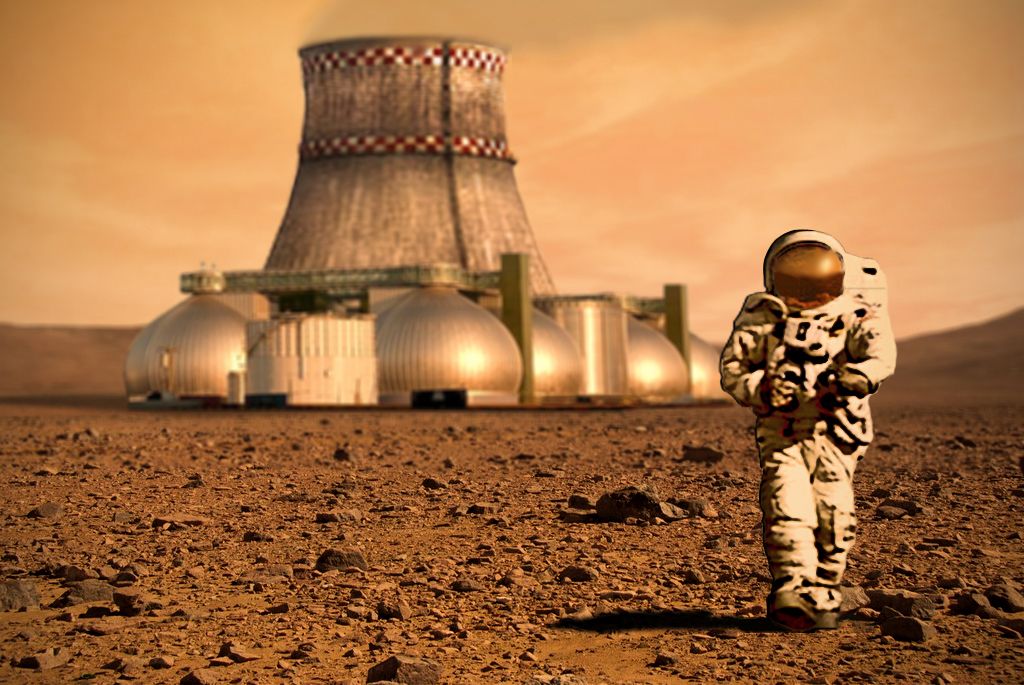The Martian becomes reality
| 27 Jun 2016: posted by the editor - International | |
|
Wageningen, 23rd of June 2016 In the university greenhouses in Wageningen, the Netherlands, the scientists have worked on growing crops on Mars and Moon soil simulants since 2013. The first experiment demonstrated that crops could grow on the soil simulants. In 2015, the researchers mixed inedible parts of the 2013 plants into the simulant and succeeded to grow ten different crops, of which several were harvested. One remaining uncertainty was that heavy metals such as cadmium, copper and lead, which are present in the soils, could contaminate the crops. If too high levels of heavy metals from the soil are absorbed in the edible parts of the plants, the crops become poisonous. The researchers have now tested four of the ten grown crops for heavy metals: radishes, peas, rye, and tomatoes. No dangerous levels of aluminium, copper, iron, manganese, zinc, arsenic, cadmium, chrome, nickel and lead were found - the four crops are safe to eat. "These remarkable results are very promising" says senior ecologist Dr. Wieger Wamelink. “We can actually eat the radishes, peas, rye, and tomatoes and I am very curious what they will taste like." Interestingly, for some of the heavy metals the concentrations in the plants were even lower than in the crops grown in potting soil. This year’s research is funded by a crowdfunding campaign, which already yielded over €11,000. A total of €25,000 is needed to test the remaining six crops, including potatoes. Dr. Wamelink: ‘It's important to test as many crops as possible, to make sure that settlers on Mars have access to a broad variety of different food sources". The crops are not only for tested for heavy metals, but also for vitamins, flavonoids and alkaloids. If the heavy metal concentration in all vegetables is below the critical levels set by the Dutch Food Agency and the US Food and Drug Administration (FDA), a dinner for sponsors of the research will be organized. Participants will be the first to eat the ‘Martian’ vegetables and will discover if Mars- and Earth grown food taste differently. The crowdfunding campaign will run until end of August. Bas Lansdorp, CEO and co-founder of Mars One: "Mars One is very proud to support this important research. Growing food locally is especially important to our mission of permanent settlement, as we have to ensure sustainable food production on Mars. The results of Dr. Wamelink and his team at Wageningen University & Research are significant progress towards that goal". More information
VIDEO: Dr. Wieger Wamelink answers five questions about growing plants on Martian soil simulant. About Wageningen University & Research For more information please visit www.wageningenur.nl About Mars One For more information please visit www.mars-one.com. Tags: Mars One |
|
|
|
| Name: | Remember me |
| E-mail: | (optional) |
| Smile: | |
| Captcha | |
